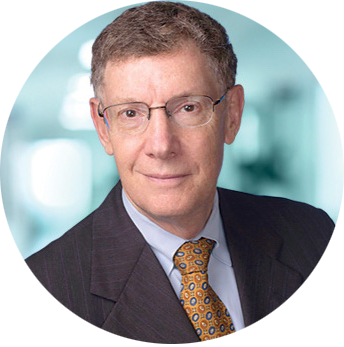Is fast food addictive? Recent research suggests the answer is: Yes.
Consider what happens when people whose behavior is consistent with food addiction are shown attractive pictures of food such as a milkshake or a hamburger and fries. MRI brain scans reveal a much more pronounced change in their brain structure and function.
There are many patterns to over-eating: Snacking when we aren’t hungry, not being able to say no to a chocolate treat, or being hooked on fast food. And we have many handy explanations for over-eating:
- It’s a lack of willpower.
- It’s being self-indulgent.
- Or it’s just having “bad eating habits.”
There are certainly many temptations today. High-calorie and high-fat foods, loaded with salt, are ubiquitous. Sadly, unhealthy eating habits among children are reinforced by fast food chains with outlets almost everywhere.
But now, new scientific evidence puts anatomical and physiological reasons behind some self-destructive food behaviors. Objective experiments make a convincing argument that being fat, for some people, is an addiction. Certainly, many people have a genetic predisposition to obesity. Others are using food as a substitute for some other needs. But researchers at Yale University and elsewhere are now distinguishing so-called food addicts from overeaters.
Many alcoholics, drug addicts, and those afflicted with other addictions have a common area of the brain that responds excessively to a particular substance. This common pathway is a rational explanation for some addictive and self-destructive behaviors.
However, we must be careful not to excuse masochistic actions as being purely biological and therefore impossible to alter. For many of us, better outcomes are possible if we alter our environment and eliminate temptations.
What does research tell us about people with actual food addictions?
People addicted to food are obsessed to the point of not being able to think about anything else. According to Yale researcher Ashley Gearhardt, “Some of them actually stop socializing because it gets in the way of their eating.” Ms. Gearhardt was involved in creating the 26-question “Yale Food Addiction Scale” which has now been correlated with the MRI findings. In other words, people with food addictions have a high score on the questionnaire and have MRI findings consistent with this condition.
The topics range from “When I start eating certain foods, I end up eating much more than I planned,” to “During the past year, did you try to cut down or stop eating certain foods altogether?” There are no “trick” questions, but each answer is weighted and then the scores are tabulated using various levels of significance. For instance, if you make a special trip to the store to buy a particular food when you have other foods already at home, this is a serious problem—and an example of behavior identified in this questionnaire.
You think about food for more than one hour a day. Food addicts use food as a diversion. They turn to eating instead of dealing with their emotions in a healthy way. You eat after arguing with your spouse or a friend. In this situation, food becomes a drug used to numb painful emotions. You experience withdrawal symptoms when you are not eating. Addicts experience visceral symptoms such as shaking, dizziness, and sweating. You can’t stop eating even when you’re not hungry.
The U.S. Department of Agriculture recommends that an adult male consume 2,800 calories, and a maximum of 93 grams of fat per day. One meal at a fast-food restaurant—burger, fries, drink, and dessert—nearly meets this requirement in one sitting. Unfortunately, as you gain weight and become accustomed to these addictive foods, your brain loses its ability to resist. Essentially, your feedback system—which signals your brain that you have consumed enough—becomes reset at a higher level, and you don’t stop when you should.
The fatter a person becomes, the more difficult it is to lose weight. The more we eat, the more we want to eat. The more we indulge in fast food, the more habituated we become. This vicious cycle has a physiological basis which has been examined in studies at Rockefeller University in New York City. Exposure to fatty foods causes the body’s hormonal system to want more fat, according to neurobiologist Sarah Leibowitz.
Animal experiments confirm that young rats fed a high-fat diet invariably became obese rats later in life. Early exposure of children to fatty foods probably predisposes these youngsters to obesity in later life.
We know that individuals with compulsive eating habits and genuine food addictions require specific therapies. But apart from those individuals, what can the rest of us do to break poor eating patterns, or avoid them in the first place?
First, recognize how societal changes affect us individually. Decades ago, fast food was promoted for an occasional meal when time and convenience were the goals. Wholesome home cooking was the standard. But today, fast food has become a staple.
Therefore, seeking wholesome food is more difficult—but worth the effort. Restaurants, vacations, and “celebratory” occasions can become events chock full of high calories, fat, salt, and sugar. But restaurants are getting smarter about offering healthy choices, which means you do have a choice when you pick up a menu.
When we say, “Let’s get together,” that doesn’t always have to mean, “Let’s grab a bite.” There are many creative alternatives, including a nice walk in the park where we can chat and get some air and exercise.
The simple truth is that there are long-term consequences of not changing our diets and carting around the wrong body weight. We have many opportunities to change our behavior for the better. Knowledge is powerful. Willpower is still a potent force. Regular exercise is essential. We need to arm ourselves with these disciplines when bad food choices are all around us.






